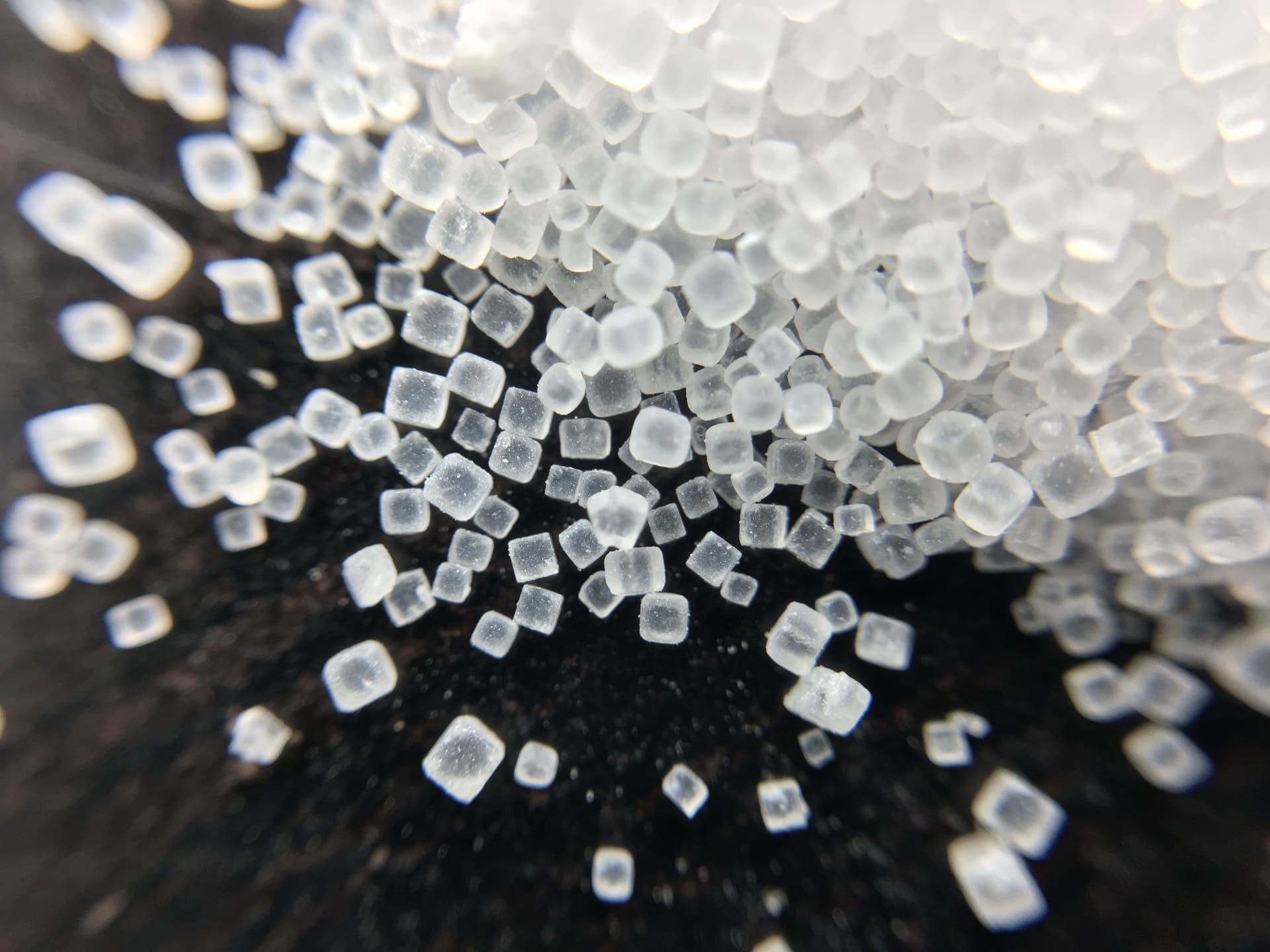What is iodine?
Iodine is a chemical element that is essential to our bodies and our health. It occurs naturally in the form of salt, particularly in oceans, soil and fish. However, it can also be found in the form of food supplements, particularly for people with iodine deficiency.
The benefits of iodine
Iodine plays a crucial role in human health, in particular by regulating metabolism and thyroid hormones. It is also essential for the development and maintenance of the nervous system, as well as for bone health. Here are just some of the benefits of iodine for our bodies:
- It promotes the production of thyroid hormones, which in turn regulate metabolism and cell growth.
- It helps to maintain a healthy nervous system and improve cognitive capacity.
- It helps to regulate energy levels and manage weight.
- It helps boost the immune system and fight infection.
- It is important for the development and health of babies and young children.
Origin of iodine
Iodine is mainly present in seawater and can be absorbed by marine plants and animals. Sea salts are also a rich source of iodine. The oceans represent around ⅔ of the Earth's surface and are therefore an abundant source of iodine.
Volcanic soils are also rich in iodine, as volcanoes release this element into the atmosphere, which then falls back onto the soil. However, due to pollution and erosion, soils can often lack iodine, making it difficult to access this element through the diet.
Use of iodine as a dietary supplement
Unfortunately, many people around the world suffer from iodine deficiency, particularly in regions far from ocean coasts. Iodine deficiency can lead to serious health problems, such as thyroid disorders, stunted growth, neurological problems and an increased risk of cardiovascular disease.
In these cases, it is advisable to take a food supplement in iodine to make up for the shortfall in the diet. It is important to always use quality food supplements and to consult a health professional before starting any iodine-based treatment.
The World Health Organisation recommends a daily intake of around 150 microgrammes of iodine for healthy adults and up to 290 microgrammes for pregnant or breastfeeding women. However, requirements may vary according to age, sex and the overall health of each individual.
How do I choose an iodine-based dietary supplement?
The best way to choose an iodine-based food supplement is to consult a health professional, such as a doctor or nutritionist. This will ensure that the supplement is suitable for your personal needs and that it does not risk interacting with other medicines or supplements you may be taking.
You can also check the concentration of iodine in the food supplement. Most supplements contain between 112 and 300 micrograms of iodine per portion. It's best to avoid supplements containing more than 500 micrograms per portion, unless advised otherwise by a health professional.
It's also important to choose dietary supplements based on natural iodine rather than artificial iodine. Natural sources of iodine are generally better absorbed by the body and have fewer undesirable side effects.
Precautions to be taken
Too much iodine can also lead to undesirable side effects such as nausea, headaches, skin rashes and increased secretion of tears and saliva. It is therefore important to take the dietary supplement in the recommended doses and to monitor your body for any undesirable effects.
It is also important to note that excessive consumption of iodine can be dangerous for people suffering from thyroid disorders, certain heart problems and certain types of cancer. It is therefore essential to consult a health professional before starting to take an iodine-based dietary supplement.
Conclusion
Iodine is essential for our health and well-being. Iodine deficiency is common in different parts of the world and can lead to serious health problems. That's why it's important to eat iodine-rich foods or take a dietary supplement to make up for these deficiencies. However, it is also important to take precautions when consuming iodine-based food supplements, by observing the recommended doses and consulting a health professional if necessary.











